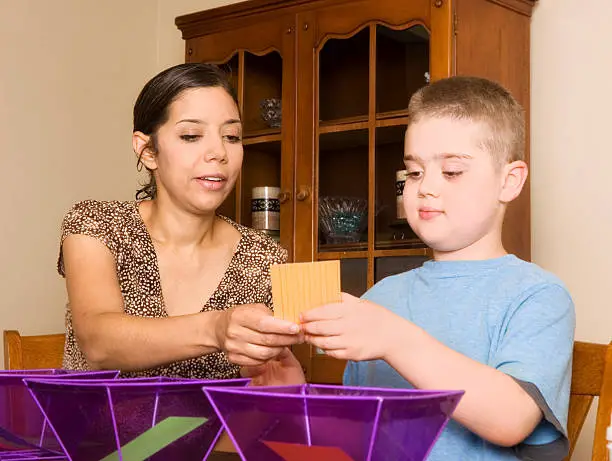Grants for autism programs are financial aids or funds given by organizations—be it governmental, non-profit, foundations, or private firms—geared towards supporting projects that improve the quality of life for individuals with autism and their families. Autism is a broad spectrum disorder, which affects individuals differently and to varying degrees. It is characterized by challenges with social skills, repetitive behaviors, speech, and nonverbal communication.
To address these, various organizations globally offer financial aid or grants to support the creation and sustenance of programs dedicated to autism awareness, research, and treatment.
In this guide, we delve into the essence of these grants, how to apply for them, and we will spotlight twenty organizations providing such grants.
What Are Grants for Autism Programs?
Grants for autism programs are financial aids or funds given by organizations—be it governmental, non-profit, foundations, or private firms—geared towards supporting projects that improve the quality of life for individuals with autism and their families.
These grants support a wide range of initiatives, from research on autism to providing education, therapy, assistive technology, and other services to individuals on the spectrum.
Importance of Grants for Autism Programs
Securing a grant for an autism program can make a significant difference in the lives of those affected by Autism Spectrum Disorder.
For instance, they can provide funding for much-needed therapy sessions, educational materials, or equipment for those with autism. This leads to an improvement in the quality of life for these individuals and their families, promoting their overall well-being and social inclusion.
How to Apply for Grants
When applying for autism grants, the steps are usually as follows:
- Identify a Grant Opportunity: Research organizations that fund autism programs. Look out for their mission and objectives to see if they align with your program.
- Understand the Grant Guidelines: Carefully read the eligibility criteria, application process, and submission deadlines.
- Proposal Writing: This is the most critical step. Your proposal should outline your program’s purpose, objectives, methodology, budget, timeline, and how it will impact individuals with autism.
- Submission: After carefully reviewing your proposal, submit before the deadline.
- Follow-up: If permitted by the grant organization, follow up on your application.
Practical Examples of Autism Grants
Example 1:
ABC Non-Profit, which focuses on autism education, wants to develop a mobile application to improve social interaction skills among children with autism. They apply for a grant from the XYZ Foundation, detailing the app’s purpose, features, development timeline, and expected impact. After a thorough review, the XYZ Foundation approves their grant application and funds the project.
Example 2:
A local school district identifies a need for specialized autism support for its students. They draft a proposal for the DEF Government Grant program for assistive technology, outlining their need for specific software and equipment to facilitate autism-friendly learning. After evaluating the proposal’s merit, the DEF Government approves the grant.
Twenty Organizations Funding Autism Grants
1. Autism Speaks: This organization provides several grants, including the Norma and Malcolm Baker Recreation Program, which funds social and recreational programs for individuals with autism.
2. The Doug Flutie Jr. Foundation for Autism: They offer the Allison Keller Education Technology grants to schools and organizations for education, advocacy, and support.
3. Organization for Autism Research (OAR): OAR provides grants for research and studies related to Autism Spectrum Disorders.
4. Autism Science Foundation (ASF): ASF offers pre and postdoctoral training grants and undergrad summer research grants.
5. National Institutes of Health (NIH): The NIH funds a wide range of medical research, including autism.
6. The American Speech-Language-Hearing Foundation (ASH Foundation): The foundation provides grants, scholarships, and awards that advance knowledge about communication disorders, including autism.
7. Autism Research Institute (ARI): ARI provides grants for research aimed at improving the health and wellbeing of people affected by autism.
8. Simons Foundation Autism Research Initiative (SFARI): SFARI provides research grants seeking to improve the understanding, diagnosis, and treatment of autism spectrum disorders.
9. National Institute of Mental Health (NIMH): They provide grants for research into mental health issues, including autism.
10. The Daniel Jordan Fiddle Foundation (DJF): DJF provides grants to programs that enrich the lives of adults living with autism.
11. Autism Support Network: They offer grants to organizations for projects that improve the lives of those affected by autism.
12. The Grant a Gift Autism Foundation: This foundation supports those affected by autism through grants for diagnostic and treatment funding.
13. CAN Foundation: The foundation provides financial assistance to families for therapies and treatments that are not covered by insurance.
14. The Pacer Center: They offer grants to support children with disabilities, including autism.
15. Act Today!: Act Today provides grants for families that cannot afford or access the necessary tools their autistic child needs.
16. Danny’s Wish: This organization provides iPads for children with autism.
17. HollyRod Foundation: The HollyRod Foundation provides assistive technology devices to those with autism.
18. Pathfinders for Autism: Pathfinders for Autism offers resources for families and individuals with autism.
19. United Healthcare Children’s Foundation (UHCCF): UHCCF provides medical grants for families who have children with medical needs not covered or not fully covered by their commercial health insurance.
20. First Hand Foundation: They offer funding for children whose needs are not met with insurance, government aid, or other assistance.
Autism program grants are a powerful tool for change, impacting the lives of those living with autism and their families. These grants can fund a myriad of projects and services, enhancing the quality of life and creating a more inclusive society for individuals with autism.
By following the above guidelines and understanding the practical examples, securing a grant for your autism program is a mission possible. Reach out to any of the twenty organizations mentioned to explore the opportunities they provide.




